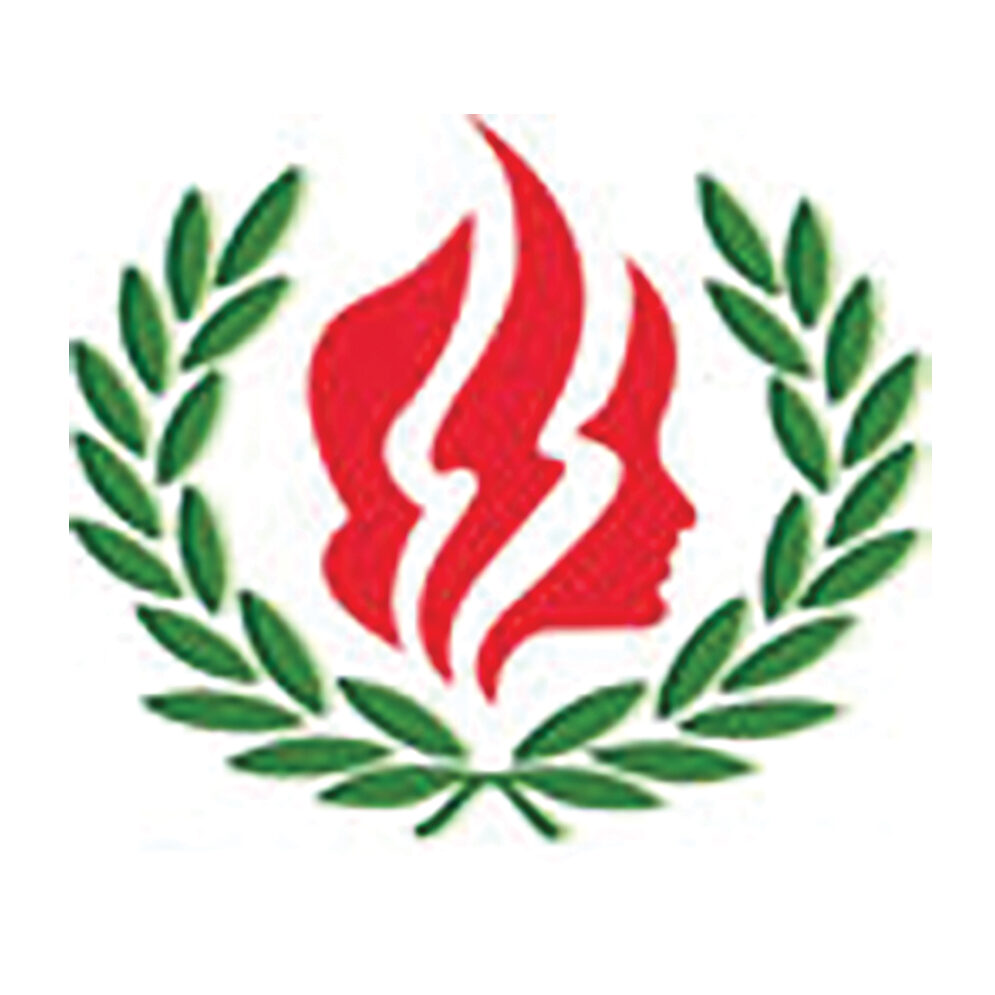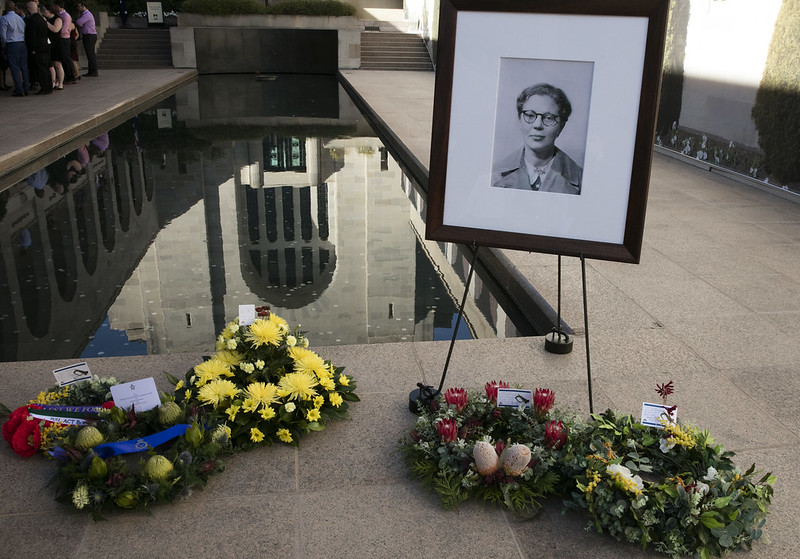Bangka Day 75th anniversary memorial service at the Australian War Memorial by the Honourable Dr Brendan Nelson AO, Director of the Australian War Memorial
Australians all let us rejoice, for we are young and free.
The first line of our national anthem.
We sing it often. We will sing it today.
Less often do we pause to reflect upon what it means.
The great paradox of life is that it is often that which is most important to us we are tempted to take for granted – the magic vitality of youth; families who love and support us, giving meaning and context to our lives.
So too Australian citizenship whether conferred by birth or by choice.
A nation that gives us political, economic and religious freedoms; where faith coexists with reason, free academic inquiry, an independent judiciary and a free press.
A nation reveals itself in certain subtle but powerful ways.
Beneath the Byzantine inspired dome of the Hall of Memory at the Australian War Memorial is interred the Unknown Australian Soldier.
Standing silent sentinel above him are fifteen stained glass windows. Each depicts a serviceman and nurse from the First World War.
At the base of each is a single word – worthwhile intrinsic virtues, values informing character. Derived from the Greek word meaning the impression left in wax by a stone seal ring, transcending all else in life is – character.
The most prominent image chosen in the centre facing Anzac Parade across the lake to the parliament is neither the light horseman nor a Naval Officer.
It is a nurse.
In her hands is a basin containing instruments. Immediately above her head is the Red Cross – universal symbol of charity. Further above it is a pelican feeding her young directly from her bleeding heart, the ultimate symbol of the quality named below – Devotion.
To completely subsume yourself into the people and the cause to which you have committed.
Straddling Anzac Parade are our nation’s sacred Memorials.
The nurses’ memorial simply says, Beyond all praise.
With a sense of awkward humility, abiding reverence infused with overwhelming pride, we pause here to remember and honour.
We honour sacrifices made, suffering endured and lives given for the truths by which we live.
We do so as free and confident heirs to a legacy born of idealism, forged in bloody self-sacrifice and passed now to our generation.
We recommit ourselves here to one another, our nation and the ideals of mankind.
We are free, with a greater belief in ourselves and what it means to be an Australian in no small way as a consequence of the events that bring us here today.
The massacre of 22 young Australian Army nurses on Radji Beach, Banka Island 75 years ago, survived by only one of them.
The most important year in Australia’s history was 1788. The next was 1942.
The Second World War was no mere extension of the First World War, nor was it about Australia’s place in the world. Our vital interests were at stake and one million Australians, including 70,000 women would mobilise in defence of all we hold dear.
As the Japanese bombed the US Naval base at Pearl Harbour on 7 December 1941, they landed on the Malay Peninsula.
The sweeping advance of militarist, Imperial Japan on Singapore was swift, crushing the courageous but inadequate British and allied defence of the Island. On surrender, twenty two thousand Australian troops went into captivity. Eight thousand would not survive their brutal incarceration.
Although they protested leaving their patients, 65 Australian Army Nurses were embarked on SS Vyner Brooke on the 12th of February 1942.
Two days later, the desperately overloaded ship was attacked and bombed by Japanese planes, sinking within half an hour of Sumatra.
Twelve nurses were killed or drowned in the water. Desperately clinging to debris and determined to support one another, especially the injured, 22 would spend from 8 to 65 hours in the water before stepping onto the sand of Radji beach, Banka Island. Some were badly injured. All wore their uniforms and Red Cross armbands.
The Japanese found them on 16 February. The only survivor of what would follow was Vivian Bulwinkel who described what happened after the war:
….about 10 o’clock on the 16th of February the ship’s officer returned with a party of about 20 Japanese (soldiers). They lined us up – the men, of whom there were about 50, on one side and the 22 nurses and one civilian woman on the other.
They then took the men away down the beach behind a bluff….they came back and cleaned their rifles in front of us, and then signed us to march into the sea.
They then started machine-gunning from behind.
The bullet that hit me struck at the waistline and just went straight through. The waves washed me back into the sand….all was quiet….the Japanese had disappeared.
Prior to their execution, tending the wounded on the beach, the nurses contemplated escape.
Matron Irene Drummond spoke softly. She reminded everyone that they could not abandon their remaining patients saying, “Where there is life there is hope”.
When the Japanese set up the machine guns facing the water, their fate was clear. No order was given – the nurses just started shuffling forward into the sea.
There was no shouting, hysteria or panic.
Sister Florence Casson had been severely wounded in the bombing, her leg broken. Unable to walk, she was helped into the sea by her friends.
Aware of what was about to happen to them as they walked to the water’s edge, Drummond said to her sisters, “Chins up, girls. I’m proud of you…. I love you all”.
Three died on the beach before reaching the water, clumped together in death as they had been in life. Irene Drummond was hit with machine gun fire close to the water’s edge, killed instantly by the second bullet.
Vivian Bulwinkel heard some pray. Others up to their knees in the bloodstained water called the names of those they loved. But most fell silently until Vivian was hit by the bullet that would bring darkness but not death.
The Japanese soldiers then bayoneted all the wounded civilians on the beach and in a fisherman’s hut.
Of the 65 nurses thrown into the sea in the sinking of SS Vyner Brooke, 32 suffered brutality, starvation and malnutrition in the women’s camp. Vivian Bulwinkel and her closest friends kept her story secret.
Pat Gunther wrote to her family:
Dear Family,
Please don’t worry about me. I enlisted of my own free will, knowing I could be going into a war zone. We nurses have been interned with a lot of other women. We have always managed to stay together. I have not been raped, bashed or tortured. If I die, it will be due to malnutrition or malaria. I am still me.
All my love
Pat
Such was their suffering, Pat Gunther also wrote:
We reached the stage where we envied those who had been lost at sea, and even the nurses who had been massacred. They had not known the misery and wretchedness of life in a Japanese internment camp. It was all over so quickly for them.
Pearl Mittelheuser passed away on the 18th of August, her best friend Sylvia Muir curled in the foetal positon next to her, unable to cry because of dehydration.
‘Mitz’ had simply whispered in dying that all she wanted was to once more hear her family call her by name.
Pat Gunther had hoped to die in her sleep. She survived.
Of the eight nurses who did not, all died in 1945.
When Annie Sage, the Matron-in-Chief of the Australian Army Nursing Service at last located the 24 surviving nurses in September 1945 she asked, “But where are the rest?”
Each of them, like each of us had only one life – only one chance to use life in a way that would serve others and our nation.
They chose us.
From the safe distance of this century, it is tempting – human beings that we are, to settle for the broad brushstrokes of history, headlines, popular imagery and mythology. Our comfortable lives breed easy indifference to individual sacrifices made in our name, devotion to duty and to Australia.
This generation of Australians now leaving us, whose sacrifices bring us here today, is the greatest generation this nation has produced.
Born in the aftermath of the war that was, growing up through the Great Depression and coming to adulthood under the shadows of the war that was coming, they mobilised to defend our nation, its values and vital interests.
They would then undertake the economic and social reconstruction of post war Australia, laying the foundations for the prosperity enjoyed by subsequent generations.
Their Australia is one to which we should recommit ourselves – an Australia that enshrines principle above position and values before value; one in which our responsibilities to one another, our nation and its future, transcend and define our rights.
We will be at our best in facing different, threatening horizons, if we triumph as these nurses did – over fear. Fear not only of an enemy in war, but in peace – prejudicial fear of the unfamiliar and the unknown.
On Radji Beach, Irene Drummond urged her friends to hope. Her last act in facing death was to offer them love.
The most fragile yet powerful of human emotions is – hope.
We have to believe in a better future – for ourselves, our families and our nation. Hope is inspired and sustained most by reaching out in support of one another, irrespective of the cost to ourselves.
Today we honour women who did so in the face of unimaginable adversity.
From this tragedy we are inspired to hope, love and friendship.
Hope for – and belief in, our common future.
Love for friends and between friends. Love of family and love of Australia.
We honour on these playing fields women whose lives were committed not to themselves but to us, and their last moments to one another.
We honour all those women who serve and have served this nation not only in its defence forces but in every field of endeavour. More than anything else, it is women who bring to leadership a heightened sensitivity to the needs of future generations.
We honour them best by the way we live our lives and shape our nation.
Let us inspire the next generation to embrace the world as confident, compassionate people, imbued with this legacy. It is one of courage, endurance and understanding that in facing new emerging and threatening horizons, what we will need most is – one another.
For we are young and we are free.
Lest we forget.

